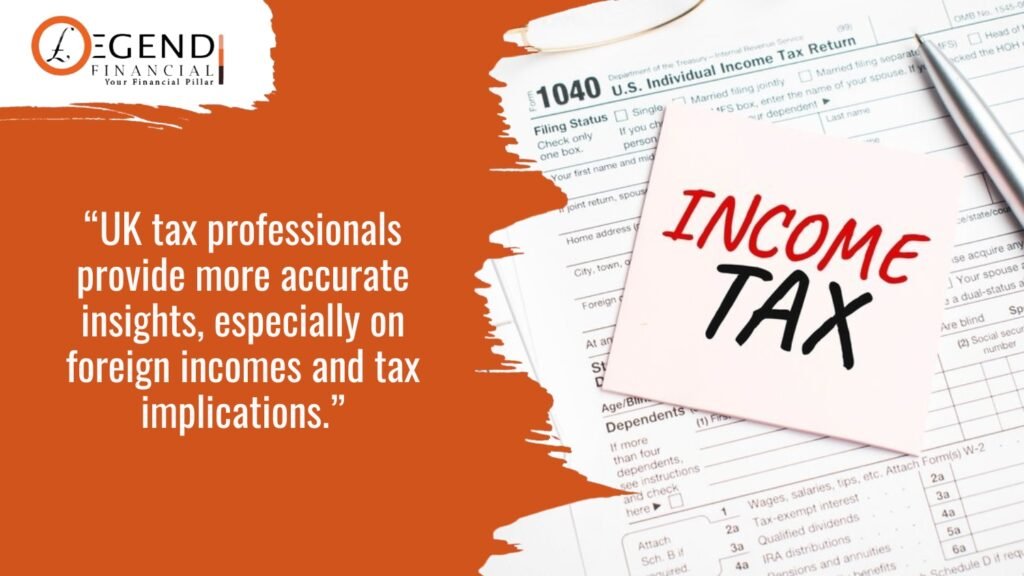Contents
HMRC automatically class UK people who lived abroad for more than six months in a year as non-resident landlords, even if they are considered UK residents for tax purposes. Currently, there are plenty of Brits abroad who continue to earn from their UK rental property to support themselves in another country.
This article provides a simple guide on what they must know about tax on rental income as non-resident landlords. Our tax on rental income UK calculator below can be used to work out both resident and non-resident landlords’ rental income taxes.
Understanding Non-Resident Landlord Scheme
Living outside the UK for more than six months in a year will put an individual (private landlord) earning UK rental income under the non-resident landlord scheme (NRLS). HMRC sees them as ‘non-resident landlords,’ hence, implements different filing rules.
A company, on the other hand, is considered ‘non-resident’ when its main branch is based abroad, or it was not incorporated in the UK. A trust is also considered one when almost all of the trustees live abroad.

Rental income tax is due when the landlords’ annual earning is more than £1,000 after allowable expense deductions, added to their other UK income sources (pensions, savings, wages, etc.). For the 2024-25 tax year, the income tax personal allowance is at £12,570. Private landlords do not have to make National Insurance contributions, unlike buy-to-let companies.
Under the NRLS, tenants who make more than £100 rental payments per week may be obliged by HMRC to register under the scheme and pay the rental tax on behalf of the landlords every three months. Landlords can also hire an agent or UK-based tax experts to settle the rental income tax.
Non-resident landlords, regardless of income, will need to register for and file a tax return unless HMRC informs them they do not need to. Moreover, they cannot file through HMRC’s free online self-assessment service, only via post or commercial software.
With the latter options, landlords receive the buy to let rental profit in full and pay the tax bill themselves. They may also simply get a refund if their tenant or agent has already paid.
See which tax bracket taxpayers belong in our UK Tax Calculator: Quick Guide to Income Tax. Note that Scotland’s tax rules and income tax rates differ from those of the rest of the UK. The double taxation agreement is also a crucial factor, as it was implemented to prevent UK people from being taxed twice.

How to Apply for Non-Rental Income Tax Deduction
To opt out of rental income tax deduction, non-resident landlords can apply from HMRC for approval through the following:
Click the forms above for the respective applications. If approved, landlords can pay tax via self-assessment, which means they receive their rental income in full amount without any tax deductions from the tenant or agent.
Tax on Rental Income UK for Non Residents
Use our tax on rent calculator below to get a rough estimate on how much rental income tax to pay in the 2024/25 tax year. Be sure to fill out the deductible expenses (e.g., buy-to-let mortgage interest, maintenance fees, etc.).
Disclaimer: The results above are just an indication and do not replace tax professionals’ advice. Moreover, the tool is for rental tax purposes only, not overall income tax liability. Both resident and non-resident landlords can use the calculator but given the more intricate rules involving foreign income taxation, it is more recommended that tax obligations are settled with tax experts.
Frequently Asked Questions
Rental earnings are basically taxed at the same rates as other sources of incomes (e.g., jobs, pensions, savings interest, etc.). England follows four income brackets, including tax-free personal allowance; Scotland seven.
Many landlords now explore the limited company route if they want to enter the buy-to-let business, as the rules for the former have changed. Reach Legend Financial’s tax professionals for ways to reduce rental tax liabilities that will certainly guarantee tax-efficiency.
Use this formula to work out a rough estimate of a property’s value: Property Value = Gross Rent Multiplier (GRM) x Annual Gross Income from Rental Property.
Capital gains tax is paid on the profits of selling a property. There are many ways to reduce CGT, such as setting up a limited company or having joint ownership with a spouse, but it is most recommended to seek professional advice first.
Why Legend Financial for Your Self Assessment
For more accurate results, use our tax on rental income UK calculator above and get the results double-checked by our tax accountants at Legend Financial. If you are new to the buy-to-lets business, our tax professionals will help you voluntarily disclose your rental income to HMRC through the Let Property Campaign.
Whilst you can leave the tax affair to your tenant or agent through the non-resident landlord scheme, settling your taxes with the experts will give you more peace of mind. We will assist you not only in calculations but also in filing your self-assessments, paying your taxes, ensuring you are constantly compliant with HMRC, and meeting your other tax, accountancy, and business needs. Talk to us today!











